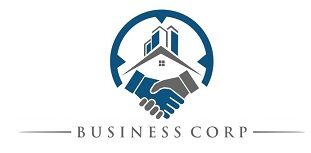Can I do monthly payment for my wedding loan in Singapore?
Weddings are one of the few major life events that require a significant lump sum of cash to be spent all at once.
Many engaged couples have no problem spending a lot of money to have the wedding of their dreams, and this includes everything from the reception to the honeymoon.

The unfortunate truth, however, is that this may put a strain on their financial situation, and it may do so at a time when they are facing other significant expenses, such as possible down payments on apartments or renovations.
When something like this happens, wedding loans can come in handy. Personal loans in Singapore are another name for this type of loan, which can be helpful when unexpected expenses force you to make a significant purchase.
This article will provide a guide to wedding loans and explain how they could be able to assist you in turning your dream wedding into a reality and whether can do monthly payment for my wedding loan in Singapore.
What are Wedding Loans?
A wedding loan is a loan that is only used to pay for the costs of getting married. Wedding loans are personal loans, and just like any other type of personal loan, whether or not you get the loan will depend on how good your credit is.
Even though some money lenders market their loans with terms like “wedding loans,” “engagement loans,” and “bridal loans,” you can use any type of personal loan to pay for the costs of getting married.
You can borrow money from a number of different places to pay for your wedding. As soon as you start looking for these things, you’ll find that there are a lot of online wedding lenders who can help you.
Financial institutions like banks and credit unions offer personal loans that can be used to help pay for wedding-related costs.
Can I do monthly payment for my wedding loan in Singapore?
Yes, you can pay monthly payment for my wedding loan in Singapore.
In general, a wedding loan is a short-term loan, and the money you owe on it would be paid back to the lender in installments over the agreed-upon time period.
Most of the time, the application process requires that you send a copy of your National Registration and Identification Card (NRIC), your IRAS Notice of Assessment, a CPF statement, your most recent pay stubs, and documents that show your billing address.
Most banks let you submit applications online, and some also let you do it through their mobile apps. You can send a financial institution an application online or in person at one of its branches.
Other ways to pay off your wedding loan
You can pay off the debt from your wedding in a number of different ways, such as by cutting costs, making more money or coming up with a plan that works for you and your situation.
The bride and groom dance with each other while holding hands on their wedding night. Because weddings are so expensive, it’s not uncommon for the couple getting married to go into debt to pay for everything.
The average cost of a wedding, according to The Knot, is $28,000, and that doesn’t include the cost of the engagement ring.
Even if you’ve been saving for years, you might still be thousands or tens of thousands of dollars in debt when you get back from your honeymoon.
This is what you need to know if you’re looking for different ways to pay off the wedding loan you took out.
Create a plan to pay down debt
It doesn’t matter how much money you owe; what’s most important is that you take the time to formulate a plan that will be effective for you.
Whether you pay off a loan in accordance with the terms of the agreement or if you only make the minimum payment on your credit cards, you could end up paying interest that is in the hundreds or even the thousands of dollars.
Thus, it is essential to formulate a strategy for paying down your debt as rapidly as is humanly possible.
Debt snowball debt payoff strategies
By using the debt snowball debt payoff strategy, you can speed up the process of paying off your debt. If you use this method, you will pay the minimum amount that is due on each of your accounts.
If you have extra money you can use to pay off your debt, you should add it to the payment you’re already making on the account with the smallest balance.
After you’ve paid off that balance, you’ll add the total payment you were making toward it to the minimum payment due on the account with the next-lowest balance. You will keep doing this until you have completely paid off all of your credit cards and other debts.
Debt avalanche debt payoff strategies
The debt avalanche method works in a way that is very similar to the debt snowball method, except for one difference.
You won’t put the account with the least amount of money at the top of the list. Instead, you’ll focus on the one with the highest interest rate.
This choice could help you save more money on interest payments, but unlike the debt snowball strategy, it might not give you any quick wins at the start of the process.
Balance transfer credit card
It’s common for credit cards that let you transfer a balance to offer introductory periods with 0% annual percentage rate (APR) deals. During these times, you can pay off your debt without having to pay any interest.
Even if you don’t pay off all of your debt by the end of the offer, you might still be able to save a lot of money.
But most of the time, you’ll need good credit to get approved for these cards, and you’ll need to look at the upfront balance transfer fee to decide if the savings are worth it.
Consolidation loan
With the money from a personal loan, you can pay off one or more loans or credit card balances that you already have over a certain amount of time.
If you’re worried about keeping your spending in check when you use a balance transfer card, this can be a great way to help you.
You won’t be able to receive a loan with an APR of 0%, but if you have strong credit, you might be able to get an interest loan rate in the single digits. When comparing different choices, make sure you keep an eye out for any upfront origination fees.
Cash gifts
If you were showered with cash gifts for your wedding, you might want to think about using at least some of it to pay off your existing financial obligations.
